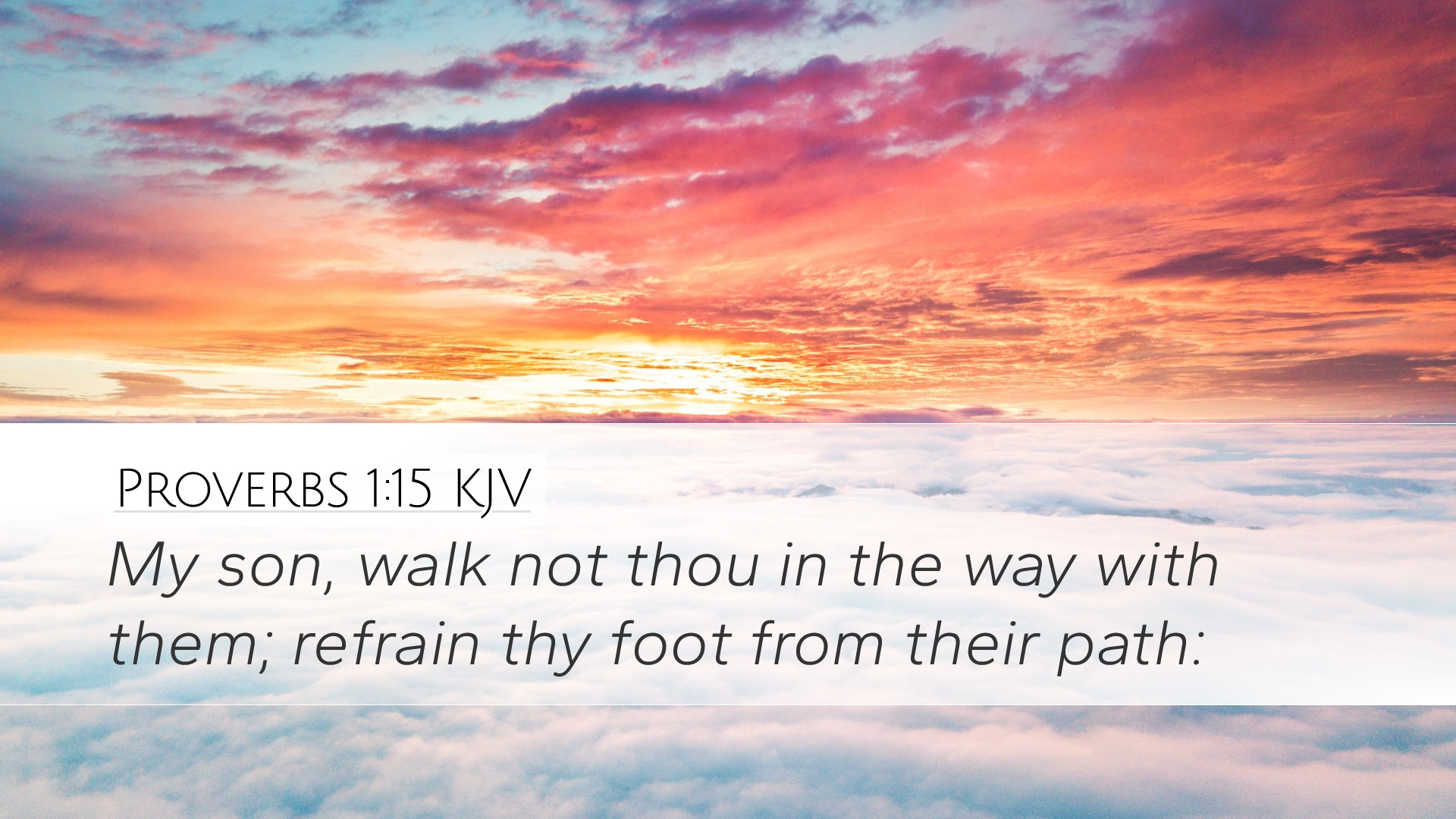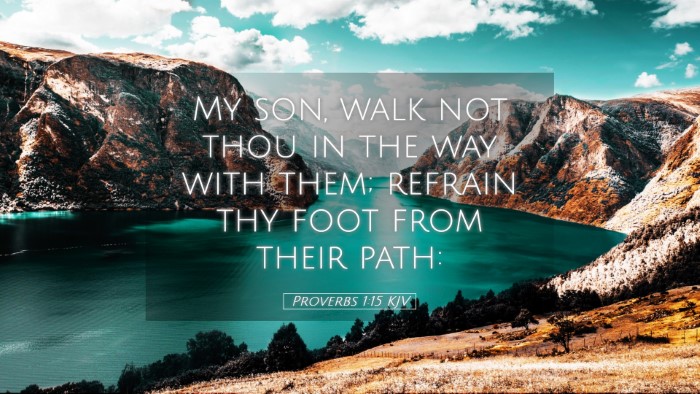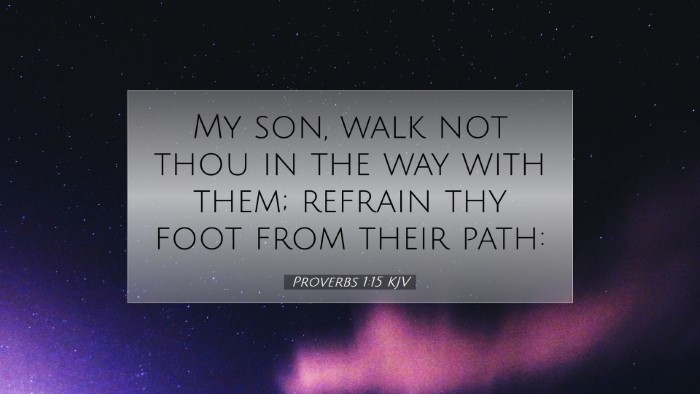Proverbs 1:15 Commentary
Proverbs 1:15 states: "My son, do not walk in the way with them; keep your foot from their path." This verse serves as a crucial admonition against the pitfalls of associating with the wicked and following their destructive ways. Various public domain commentaries provide rich insights into the implications of this verse for believers.
Contextual Analysis
The opening chapters of Proverbs are designed as a paternal appeal to wisdom. Solomon presents the reader, often referred to as "my son," with warnings against the enticements of sinners. This admonition serves not only as a guideline for personal conduct but also reflects a larger spiritual principle that pervades the Scriptures.
Matthew Henry's Insights
Matthew Henry emphasizes the necessity of vigilance in one's associations. He notes that the metaphor of walking and paths signifies a lifestyle and direction. Here, to "walk in the way with them" implies an alignment with the moral and ethical failures of the ungodly. Henry cautions that when one associates closely with those who entice to sin, the risk of moral compromise increases significantly.
"Those who are swept away into sin often follow the crowd, forsaking their own wisdom for the fleeting pleasures that come from wickedness."
– Matthew Henry
Albert Barnes' Commentary
Albert Barnes builds upon the theme of choice in his reflection on this verse. He highlights that the path of the righteous is distinct from that of the wicked, and thus the call to abstain from their path is both a protective and a prescriptive urging. He suggests that the phrase "keep your foot from their path" serves as a preventive measure, advising the hearer to not only avoid entering the path of the wicked but to maintain an active stance of resistance.
"The wise man must be aware that the company he keeps can lead him to destruction."
– Albert Barnes
Adam Clarke's Exposition
Adam Clarke provides a more detailed analysis, noting the foundational aspects of wisdom in this warning. Clarke identifies that the "path" signifies conduct and lifestyle, likening it to a journey filled with decisions that shape one's character and destiny. He argues that this verse illustrates the importance of conscious decisions, and he elaborates on how engagement with those who reject divine wisdom can lead one to ruin.
"It is not just the act of walking but the very intention of footkeeping that separates the wise from the foolish."
– Adam Clarke
Practical Application for Believers
For pastors, students, theologians, and scholars, Proverbs 1:15 serves as a vital reminder of the importance of wisdom in choice-making and relationship-building. In modern contexts where influences and friendships are plentiful, the admonition to avoid companionship with the wicked can often be overlooked.
- Spiritual Discernment: Seek wisdom to identify influences detrimental to your spiritual walk.
- Accountability: Surround yourself with godly individuals who encourage righteous living.
- Intentionality in Relationships: Cultivate relationships that build up rather than lead astray.
The Broader Wisdom of Proverbs
This verse is part of a larger literary framework in Proverbs that underscores the necessity of continual pursuit of wisdom. It teaches that God-fearing living requires not just the absence of immoral behavior but the proactive engagement in righteousness.
In summary, Proverbs 1:15 offers a timeless exhortation that is relevant across generational lines. The encouragement to avoid the paths of the wicked and to actively choose wisdom aligns with the overarching biblical narrative of the pursuit of holiness.
Conclusion
In reflection, Proverbs 1:15 challenges the individual to be firmly resolved in their commitment to wisdom and to take active steps against the allure of sin. This verse resonates deeply with the hearts of those who strive for righteousness and serves as a foundation for future wisdom living.


